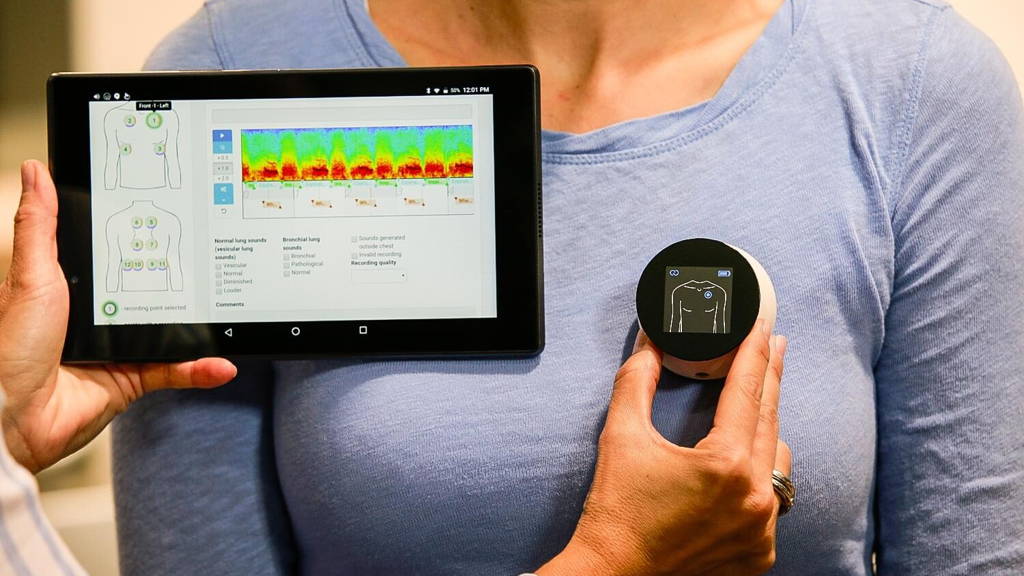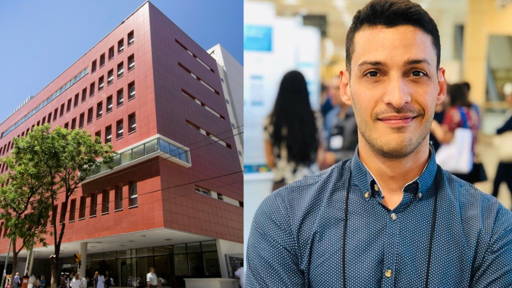Digital health generates new jobs
The huge potential that digitalisation of the healthcare industry proffers is confirmed by a study presented at MEDICA 2018, which was commissioned by Messe Düsseldorf and the industry association SPECTARIS and carried out by Roland Berger. According to this study, up to 10,000 jobs could be created by German medical technology manufacturers alone. These would be required to manufacture innovative applications and products in the networking, sensor, big data, artificial intelligence and other sectors, as well as applications and products related to electronic healthcare cards and more efficient company and clinical processes. In addition, turnover of up to 15 billion Euro could be produced by new digital products and services over the next ten years. This equates to over 30% of the expected total turnover for the German medical technology industry.
Two trends have been dominating the field of medical technology: dematerialization and digitalization
The study “Healthcare 4.0: Why Germany needs to become the leading market for the digital healthcare industry and medical technology and what we need to do to get there”, also clarifies that Germany urgently needs to take action and catch up in terms of digitalisation. According to the study, less than a third of the medical technology providers and hospitals are investing over 2.5% of their turnover in digitalisation projects. Two-thirds of the surveyed population believed that the level of digitalisation within the German healthcare industry is fairly low and almost all of them wish that there was more political engagement with this issue. Decision makers from over 200 companies of all sizes, heralding from healthcare and politics, among other sectors, were surveyed for this study.
Creative start-ups provide stimuli
Many innovative young companies aren’t frozen in the headlights; instead, they’re taking the fast track to success by supporting the digitalisation of the healthcare sector. Among the product innovations that will be discussed and presented are a smartphone ophthalmoscope to examine retinas and eyes, which consists of a camera adapter and an app; a novel procedure for diagnosing skin cancer (which also consists of a smartphone app) and a compact digital stethoscope. Designed to work without earphones, this was developed to be used by concerned parents rather than doctors. The compact stethoscope head allows them to carry out a primary check-up of their child’s airway and transmit the data to a doctor. Depending on the result, this allows them to spare themselves time-intensive visits to the doctor’s.
3D printing rapidly grows in medical technology
3D printing remains a hot topic. Often termed Additive Manufacturing, the process is growing faster in medical technology than in any other field of application. According to a forecast by the market research company “Markets and Markets”, global 3D printing for medical products is expected to increase from 840 million US dollars in 2017 to around 1.9 billion dollars by 2022, a yearly growth rate of 17.5 percent. Key factors for this rapid development are technological progress, an increase in private investments in this sector as well as the increasing application possibilities for the health industry. The growing market is divided into the large segments components, equipment, materials as well as software and services, with the last segment showing the largest growth. Here, the increasing development of progressive software solutions for manufacturing top quality, 3D-printed medical products is the main driving force.
MEDICA 2018, the leading international trade fair for suppliers from the medical technology industry, is taking place in Düsseldorf till Thursday (12 - 15 November 2018). Over 5 000 exhibitors from 66 nations and 120 000 visitors will attend.
At June 25, 26 and 27th 2019, the Netherlands is with the ICT&health World Conference the place to be for healthcare leaders, specialist, nurses, companies, universities and government officials worldwide to discus the future of healthcare with relevant innovations, smart technologies and cooperation in development and finance.








